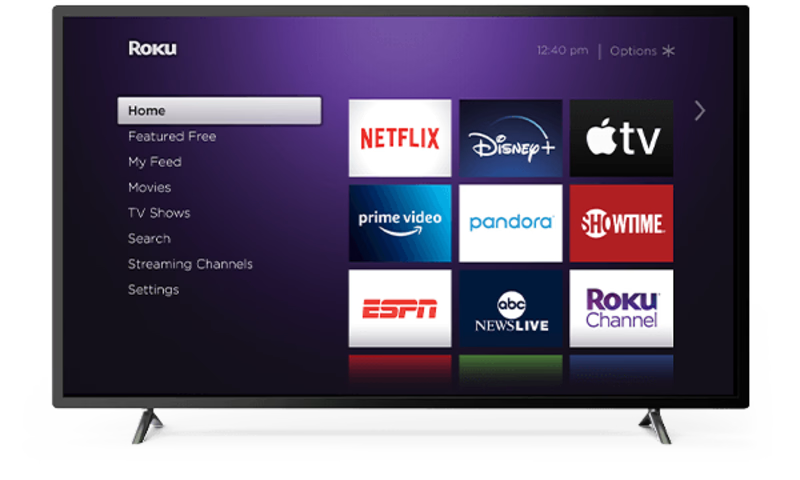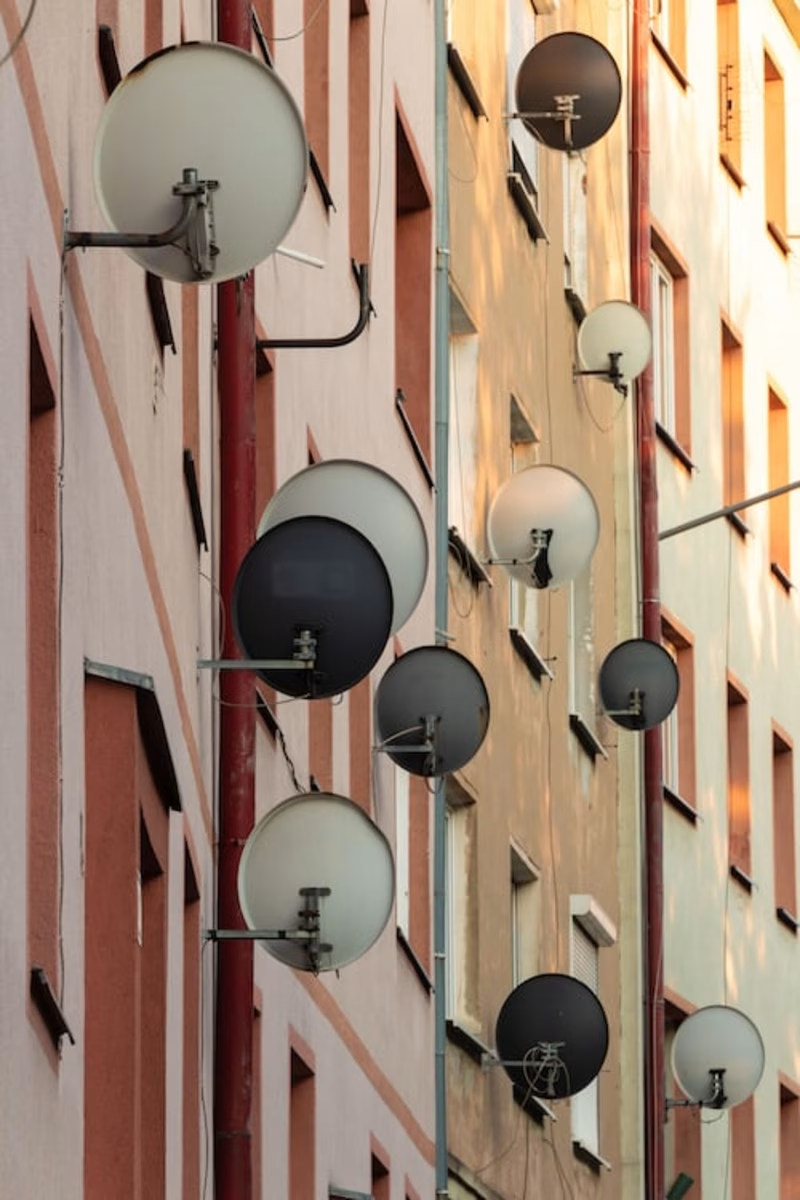Over the last several decades, satellite TV has dominated the TV distribution industry. However, since around 2015, more people now watch Internet TV than Satellite TV. How and why? Let’s go over the differences between Satellite Television and Internet Television and find out.
Satellite TV
Unlike cable TV, where the signal originates wirelessly before being distributed by a wired network, satellite TV is wireless for the entire journey. There are two main types of satellite TV on market today: TVRO (television receive-only) and DBS (direct broadcast satellite, or “direct to home” DBSTV). Both function by picking up radio signals broadcast from space satellites.
In broad terms, TVRO is the older kind and DBS is the newer kind. TVRO picks up signal with a ten-foot dish in your yard, as opposed to DBS, which uses a much smaller dish on your roof. DBS is able to save space on dish size by using 100% digital, high-frequency broadcasts (as opposed to low-frequency, digital/analog TVRO broadcasts). Satellite TV is sandwiched between cell phone signal and radar systems within 3–30 GHz.
Once your satellite dish has picked up the signal, it’s generally decoded by a set-top box to allow the consumer to “tune in” to different channels, much like cable TV. As with cable, signals are frequently encrypted to deter theft.
Unique features of satellite TV
The biggest problem with DBS is that higher-frequency bands are often more sensitive to weather interruptions. However, the fact that it’s available essentially everywhere due to the pervasiveness of satellite radio signals often makes it the best choice for consumers in rural areas.

Roku TV
Pros and cons of Satellite TV
Pros
Programming: Comparable to cable, available date of release.
Availability: Coverage virtually everywhere in the US.
Price: Generally lower than cable, and you can pick up some channels free with a general-purpose dish.
Cons
Quality: Constant broadcast means no service interruption, although storms can cause outage depending on setup.
Convenience: Requires a separate device to record programming for view-on-demand.
Pros and cons of Internet TV
Similarities and Differences: Internet TV and Satellite TV
Satellite Tv
Although Satellite Television is not a feasible option for most people in highly advanced like the USA or countries in western Europe, there are some advantages to starting a TV channel through satellite. For instance, in countries where there is low cost internet, starting a Satellite Television channel makes a lot of sense.
Some countries, particularly in Africa, may be a good fit for Satellite Television due to their high internet fees and existing Free-to-air TV subscribers. This means that your channel will be available to millions of viewers as soon as it is set up. Hence, in such a scenario, it would be of more benefit to own Satellite Television despite the fees. This does not mean that a Tv Channel over the internet is not a feasible idea in Africa.
Internet Tv
Internet Television is designed to perform the same function as satellite television – to deliver content to viewers TV – albeit it does so over the internet. It is due to this mode of transmission that Internet television is popularly referred to as Over The Top (OTT). Some people who have used the technology however assert that the quality of the programming is not as good as it is on satellite television.
Over-the-top content refers to data delivered to viewers, over the internet, by a company other than the one they subscribe to. It usually happens through an app or a website. Over-the-top content can also refer to data delivered by an unlicensed or third party applications or websites through the internet to users’ devices.
Internet Television is a technology that allows users to view TV content on their TVs, smartphones or computers. You can watch live and on-demand content from many TV channels any time, anywhere with an internet connection. Wired provide great information on the rise of Internet Television.

Which Is Better?
There are certain criteria required to assert which mode of transmission will be a better choice.
Quality: Quality is an ever present element in deciding between to things. In this case, video output quality is very important to decide between Satellite or Internet Tv. Satellite Television means no buffering usually good video quality. Internet Television occasionally suffers from buffering and if the internet connection is not good, video quality could drop drastically. Verdict: Satellite TV
Availability: Whether one is content producer or consumer, the availability of a tv channel regardless of location is very important. Satellite Television Channels are limited by the dedicated satellite for them. If the satellite can only cover West Africa for instance, then only those in West Africa can view the channel. However, Internet television has no such restriction. Internet TV channels are typically available globally, unless a restriction has been placed upon it. Verdict: Internet TV
Cost: Another major factor is the willingness of people to pay the given price of a product. Satellite TV can be quite expensive to setup and maintain for certain individuals and companies. For consumers, the price of receivers and other equipments may not be worth it for them. Internet Television on the other hand, is relatively inexpensive and consumers barely ever require any equipment to view the channel. Verdict: Internet TV
Security: Security is also another factor that should be taken into consideration when deciding between the two. Satellite Television has a longer history of being secured and protected against hackers unlike Internet Television. Verdict: Satellite TV
Mobility: The ability of the receiver to travel with an individual is very important. In both cases, the receiver must be physically put in a certain location and not moved anywhere else due to its high dependency on electricity or extra equipment like satellite dish for Satellite Tv. Verdict: Internet TV

Dishes Used In Satellite TV
Final Thoughts
There is generally no right or wrong choice between Satellite and Internet Television. The choice is typically dependent on what one wants to broadcast, the amount of estimated viewers, and the amount of money they are willing to part with amongst others. For more info, check out our website.

